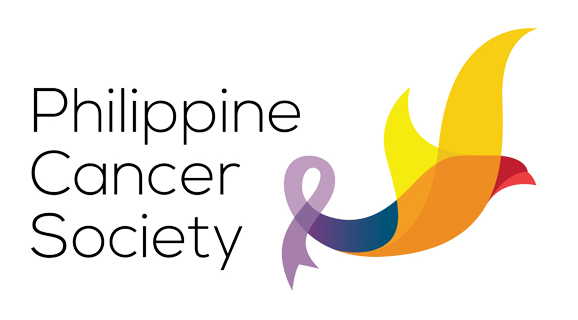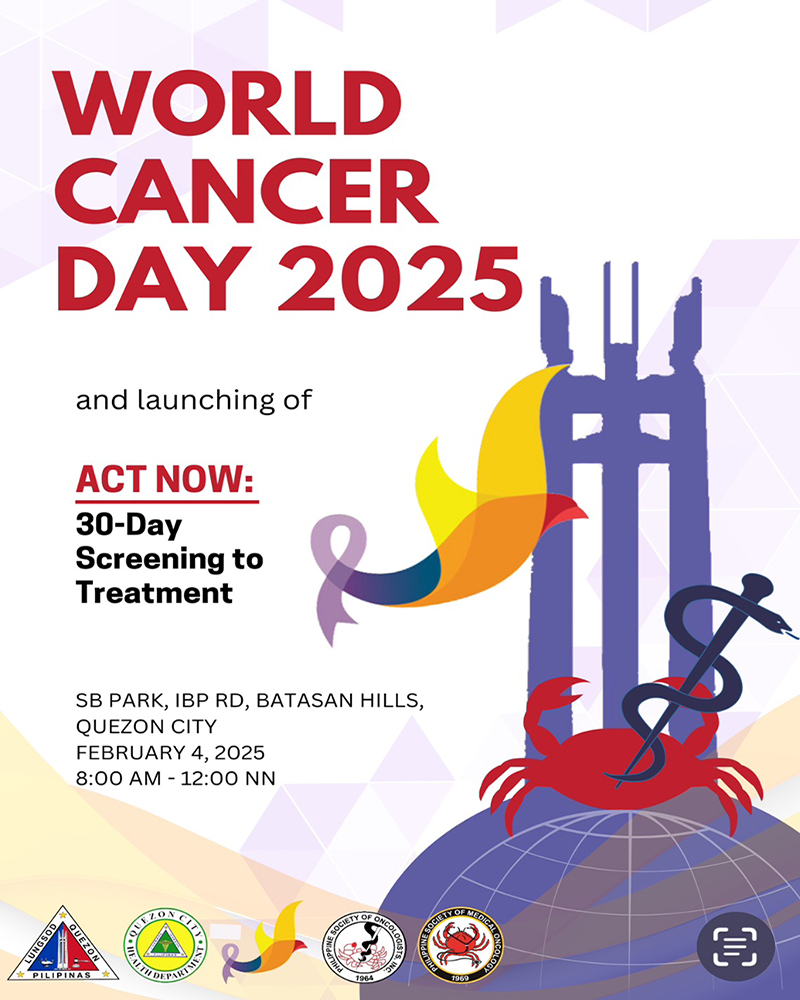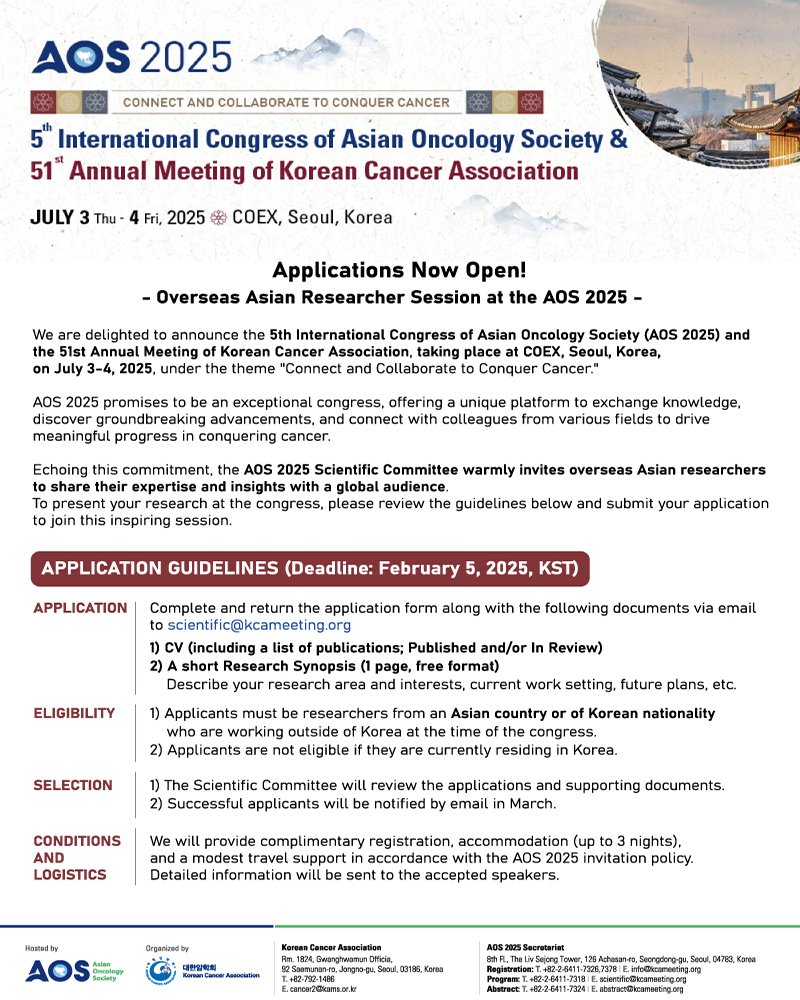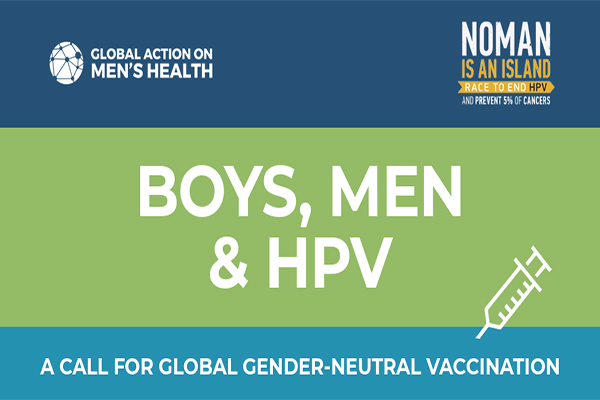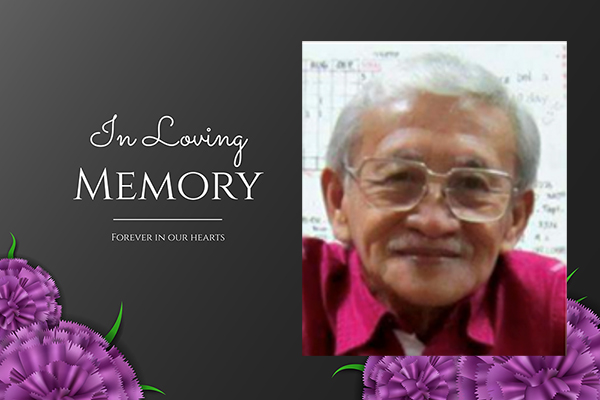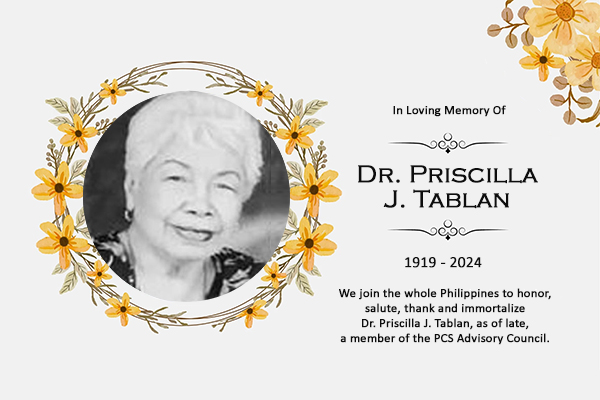Latest News
22 February 2025
News
The Philippine Cancer Society (PCS) proudly congratulates Dr. Corazon Ngelange, its President, for receiving the Distinction Award...
4 February 2025
News
This pioneering initiative was a collaborative effort between government agencies, medical institutions, advocacy groups, and international health...
3 February 2025
News
The Philippine Cancer Society (PCS) and the Technical Education and Skills Development Authority (TESDA) have taken a historic step towards...
Announcements
9 March 2025
Announcements
The Philippine Cancer Society mourns the passing of Trustee Dr. Conrado "Clipper" Lorenzo Jr. A gynecologist and former Chancellor of the University of the...
11 November 2024
Announcements
The Philippine Cancer Society mourns the loss of Dr Adriano Laudico (Professor Emeritus at University of the Philippines Manila College of Medicine)...
4 August 2024
Announcements
The Philippine Cancer Society joins the whole Philippines to honor, salute, thank and immortalize Dr. Priscilla J. Tan, as of late, a member of the PCS...
Copyright © 2014 Philippine Cancer Society Inc. All Rights Reserved.
